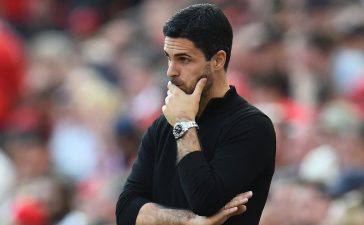Rap and drill music was used as prosecution evidence for serious charges including alleged gang-related murders against at least 252 defendants in England and Wales over a three-year period, a study has found.
The researchers at the University of Manchester, who found 68 cases involving rap evidence covering the 252 charged individuals, said the issue “urgently needs scrutiny” as there was no meaningful regulation nor even monitoring of how the criminal justice system used rap as criminal evidence.
Rap is not normally used by prosecutors as direct evidence of intention or confession, such as a lyric that suggests personal involvement in the specific facts of the crime, but rather used as indirect or “bad character” evidence to suggest violent mindset, intention to commit serious harm or gang membership, the report said.
The report, Compound Injustice, said 84% of defendants were minority ethnic people, with 66% of those Black, compared with 4% of the overall English and Welsh population, with a further 12% Black or mixed.
Furthermore, 53% of cases were joint enterprise prosecutions, the controversial legal doctrine that enables prosecutors to charge multiple people with a single crime.
At the time of trial, 15% of defendants in the cases were children – 17 years old and under – and 67% were young people, 18-24 years old.
The researchers, Eithne Quinn, Erica Kane and Will Pritchard, said their research had uncovered very concerning processes which risked innocent people being convicted of the most serious crimes.
“Our findings are deeply troubling, and support the view that the marshalling of rap evidence in criminal cases encourages police and prosecutors to further increase the number of people charged as secondaries under already-egregious secondary liability laws,” they said.
The findings echo calls from the campaign group Art Not Evidence, which was created at the end of 2022 by a group of lawyers, academics and music industry professionals who want to constrain the use of police officers as rap experts to interpret evidence against a defendant.
The report cites a joint enterprise case in which 12 people were charged with murder despite there being only one principal offender suspect.
A gang narrative was mounted by the prosecution that relied heavily on a single rap video to suggest gang membership, motivation and intention to commit serious violence.
The video was played in full in court, even though none of the 12 on trial rapped in the video nor had any role in producing it. Three defendants appeared as extras in the video.
“This case, along with illustrating the kind of tenuous ways that prejudicial rap ‘evidence’ can be used, crystallises case features from our dataset of rap cases: young, Black, male defendants, including children, in large group prosecutions facing the most serious charges in an allegedly ‘gang related’ joint enterprise case,” the report said.
Commenting on the findings, Liz Fekete, the director of the Institute of Race Relations, said: “Once again, three of the best researchers on the subject are doing what the state refuses to do.
“They have scrutinised the data on rap prosecutions, exposed the racism that lies within the law – particularly the joint enterprise doctrine – and suggested targeted reforms to end the wide-ranging criminalisation of Black expressive culture.”
To create the dataset, the team used media reporting, legal databases, academic research and professional networks to look for live cases between 1 January 2020 and 31 December 2023 in England and Wales in which rap music lyrics, videos or sound recordings were used by police and prosecutors.
Tyrone Steele, deputy legal director at Justice, the law reform and human rights charity, said: “Every child and young person deserves to have their voice heard and their creativity nourished.
“Yet the criminal justice system routinely disregards this basic standard for Black children, regarding their musical expression as criminal and suspicious. The consequences are clear, with families broken by prosecutions based on dubious evidence that is treated distinctly differently to other forms of art.
“Rap music is one of the most popular genres of music in the UK – it’s time to end the marginalisation and punishment of its creators through its use as prosecution evidence.”
A Crown Prosecution Service spokesperson said: “There is nothing criminal about enjoying or making rap or drill music.
“However, like any genre of music, it may be used in a prosecution if it discloses relevant evidence of criminal activity.
“Every case that is referred to us is considered on its individual facts and merits.”











